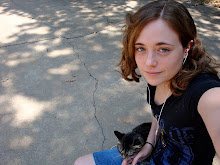"Thank you for your submission to Pixiefoot Press. We loved your story but I felt it needed a little more description and feeling from Bennett. It has a good fantasy feel that we believe is just right for the 12+ market and if you were to edit it and resubmit we'd be very eager to read it again.From reading the first three chapters, your pacing of events and characters are spot on and the only thing that needs brushing up is the overall narration. This sounds like something massive, but it needn't be at all. There is a lot of passive action; 'telling' instead of 'showing' and if you were to really get inside Bennett's head and let us see and feel what he does, it could bring the story to life.Please remember that this is just one opinion and another publisher might snap your book up right away. Also, if you rework your book and find that our doors to submissions has shut, please send your work to us anyway as it does have much potential."
Bennett stared out the window, hoping to find something interesting on the side of the road. Anything to relieve his boredom.
“Make sure you behave for your father,” his mother said after a long silence. “And remember to brush your hair and teeth.”
“Yeah, I know,” he mumbled back. Bennett spotted a chicken on the side of the road. For a second he thought it would try to cross in front of their car, but it didn’t. Bennett’s mother snapped and he looked away from the window.
“Are you listening?”
“Yes,” he said and then looked back out the glass; the chicken was gone. Now he’ll never know the age old question of why the chicken crossed the road.
“Your father will meet you when you get off the boat so look out for him and don’t stray too far from the dock.”
“I know,” he said, rolling his eyes. This is only my third trip, he thought, and it’s always the same. His mom would take him to the dock and make a big deal about her little baby going away without her. Then she would finally let him leave after a two minute ‘death hold’ hug.
The two hour ride seemed a little longer this time without the radio. It had been broken for about a month. Bennett twiddled his thumbs and stared out the window, trying to pass the time.
Instead of saying flat out that the trip was boring, I showed Bennett being bored.
So it's little things like showing and not telling that make the book come alive. When I write, I just write without over thinking it. Then I come back later and edit, move stuff around, rephrase, all that fun stuff.
Now I've got to get back to work.
That's all for now,
A. J. Spindle


























Love the new look! Very summery. And congrats again on the positive words from the publisher!
ReplyDelete